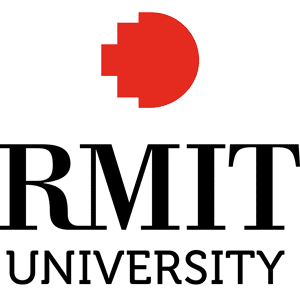Check out these project manager study programs. Find the best one for you.
When you're exploring online courses in project management, there's a wide range to choose from. Options include certificates and diplomas, graduate certificates, graduate diplomas, and masters degrees. Industry certifications are also available. Let's review training programs.
Index of Courses
To build skills without paying, free project management courses are available online. University-style courses with start and end dates are at Coursera and edX. Coursera also offers free self-paced programs. Short courses are delivered by Alison.
You can develop many professtional skills, at introductory and advanced levels, with free courses. A couple of drawbacks are poor completion rates and unofficial qualifications that you have to pay for.
The nationally accredited Diploma of Project Management provides solid training and a formal qualification. It is a standard industry qualification and has no entry requirements.
The 12-subject course has eight core subjects that you'll find in every version across Australia, covering project scope, time, quality, cost, human resources, information and communication, risk, and integration. Average duration is around 18 months. Other TAFE alternatives to this diploma are the Certificate IV and Advanced Diploma.
The most common degrees awarded to project managers include Master of Project Management, Bachelor of Construction Management, Bachelor of Information Technology, and Bachelor of Engineering.
If you're interested in a specialist master's degree, you have the option to start with a shorter graduate certificate or graduate diploma. These courses are typically embedded within master's programs, offering a way to test the degree before committing.
The Graduate Certificate in Project Management is popular among project managers. This relatively short, four-subject course serves multiple purposes.
Graduates gain: (a) an introduction to theory and professional practice; (b) a postgraduate qualification; and (c) credit towards a graduate diploma or master's degree. Experienced PMs who lack a degree also gain a university education. When you apply for jobs, you benefit from a specialist, high-level qualification.
RMIT Online - Graduate Certificate in Project Management
The RMIT Online Graduate Certificate in Project Management is an intensive, part-time course completed in 8 months. Endorsed by AIPM, it offers fast-tracked learning with six yearly intakes. Students can select a generalist pathway or an IT-focused program. The curriculum covers PM principles, risk mitigation, team leadership, and project design, readying graduates for roles in mining, IT, events, engineering, and construction. It also opens doors to further education, leading to a graduate diploma and masters.
SCU Online - Graduate Certificate in Project Management
The SCU Online Graduate Certificate in Project Management, backed by AIPM, develops your skills through an 8-month accelerated online course. It covers essential areas like risk management, planning, execution, and evaluation, offering elective units to customise your four-subject program. Ideal for working professionals, the grad cert is affordable with FEE-HELP available. As a part-time program, it lays the foundation for your career and allows for credit transfer towards further graduate diploma and master's studies.
A Graduate Diploma in Project Management is the university equivalent of a Diploma in Project Management. At just eight subjects long, this course may be slightly shorter. It goes beyond the foundations offered by a graduate certificate but takes less time than a master's degree.
Graduates gain a university-level qualification and a comprehensive skill set, preparing them for positions such as project manager, project coordinator, project engineer, and business analyst.
RMIT Online - Graduate Diploma in Project Management
RMIT University has one of Australia's longest-running PM programs. The 100% online course is AIPM endorsed and graduates may be recognised as a Certified Practising Project Practitioner (CPPP). Learning is accelerated, with subjects delivered in 7-week study blocks. Generalist and IT study streams are available. Subjects include PM techniques, and risk and financial management. The IT specialisation covers agile software development and digital innovation, while the generalist major explores technology management and initiating projects.
SCU Online - Graduate Diploma in Project Management
The Graduate Diploma in Project Management from Southern Cross University provides a thorough education in leadership. This 16-month part-time course is designed for busy professionals. It includes eight units focusing on initiation, planning, and risk management. The course broadens career options and follows PMBOK standards. Fees are affordable, with FEE-HELP loans available. It's known for high graduate employment and excellent student support, making it a practical option for advancing in this discipline.
The premier qualification for project managers is the Master of Project Management. At 12 subjects long, the program is 50% bigger than a graduate diploma.
Students are able to broaden their knowledge base and explore more topics. A capstone industry research project is normally included. Combined with appropriate experience, graduates are qualified for high-paying senior roles.
SCU Online - Master of Project Management
The Master of Project Management from Southern Cross University is endorsed by the AIPM and aligns with the PMBOK Guide. The 100% online program consists of 7 core subjects, 3 elective units, and a double-weighted industry research project. SCU Online has designed it to be fully compatible with full-time employment. Subjects are completed one at a time over 7-week study periods. You can complete the full masters in 2 years while working. Topics include commencement and planning, contract management, quality control and risk, and Agile.
Popular project management certifications in Australia are PMP, PRINCE2 and AIPM. For each one, you need to meet eligibility criteria, pay fees and pass a test. The result: you earn a well recognised professional credential.
To do well on the tests, it helps if you're an experienced, educated professional. But you can also do intensive training courses as preparation.
AIPM offers a national project management certification called the RegPM (Registered Project Manager). Candidates must collect and submit evidence that showcases their competence and requires the completion of an Assessment Record Book (ARB). Automatic certification is also available for completing approved courses.
AIPM Certification Courses comes in several levels, and they all require you to be a member of the AIPM at an Associate, Member or Fellow level.
- CPPP – Certified Practising Project Practitioner – suitable for a team member who works on projects.
- CPPM – Certified Practising Project Manager – for those who lead teams and manage projects.
- CPSPM – Certified Practising Senior Project Manager – the CPPM is required for this certification who is meant for senior managers who manage difficult and high risk projects.
- CPPD – Certified Practising Project Director – for those who direct at a high level.
- CPPE – Certified Practising Portfolio Executive – for those who monitor at a high level.
PMP is an internationally recognised certification offered by the Project Management Institute (PMI). PMP Certification is used globally, across fields and within most industries.
To be eligible, you need:
- a bachelor or higher degree, 36 months leading projects, and 35 hours of project management education/training or CAPM® Certification OR
- if you have no degree, 60 months leading projects, and 35 hours of education/training or CAPM® Certification.
The exam takes 230 minutes to complete and consists of 180 questions, which are a combination of multiple-choice, multiple responses, matching, hot area, and limited fill-in-the-blank. Questions are based on the PMP Exam Content Outline (ECO).
According to the PMI, successful PMP candidates typically spend 35 hours or more preparing.
PRINCE2 is a certification program offered by AXELOS. Different levels of certification are available.
- PRINCE2 Foundation is a beginner’s certification, used to access other PRINCE2 certifications. It consists of a 60-minute, 60-question, multiple-choice, closed-book exam, and there are no prerequisites for taking it. You need 33/60 = 55% to pass.
- PRINCE2 Practitioner is a certification that you’ll be able to apply to real projects. To be eligible, you need either the PRINCE2 Foundation or another PMI or IPMA certification (such as the PMP). The exam consists of 68 questions and you have 150 minutes available. It is open book and the official PRINCE2 manual can be used.
- PRINCE2 Agile is for managing projects combined with agile methodology. Two certifications are available: Foundation and Practitioner.
PMP and PRINCE2 offer different paths to similar outcomes: certification and PM techniques.
- PMP draws on the PMBOK Guide, a standard not a methodology. It details various processes and generally accepted techniques, making it more theoretical and a reference guide.
- PRINCE2 is a methodology with a detailed process model and templates, providing step-by-step instructions for organising and managing projects, making it more practical than the PMBOK Guide.
These frameworks differ enough to be complementary rather than competitive. You might consider doing both. PMP focuses on best practice guidance, while PRINCE2 is practical.
Why Study Project Management?
An online PM course may be a good choice if you have some experience working on projects and you want to upgrade your skills and qualifications. You can study part-time while holding a full-time job. Any current work projects may be useful for learning and assessment.
Degrees and accredited diplomas are valuable to become a qualified project manager. Short training courses can also be used to help pass professional accreditation tests. You can also study less formally for professional development or out of personal interest.
Add to your existing skillset
PM training helps ensure career success by complementing on-the-job experience. Professional certification and an education qualification (diploma or university degree) help you to:
- learn to manage projects in a structured way and build applied skills (such as using PM software)
- better communicate with colleagues and be trusted to take on more senior roles
- land jobs by demonstrating professional development, and branch out into different industries and roles.
Most project managers start with industry experience but without formal training. Continued career progression eventually depends on doing courses and gaining accreditation. The sooner you do that, the greater the long-term advantage.
Career Opportunities

To be a good project manager, you need a balanced, all-round set of skills and qualities. Not everyone can do it. A formal education complements on-the-job experience when seeking employment.
A skills shortage for project professionals exists in Australia. Jobs on the skilled occupations list, for which there is unmet demand according to the Australian Government, include Construction Project Manager, ICT Project Manager, Program or Project Administrator, and Project Builder.
Managing projects is dynamic and challenging. It keeps you engaged. Each project is unique. Teams have diverse personalities. You learn, communicate, and solve problems constantly. Delivering well-executed projects brings satisfaction and recognition.
PMs who deliver on time, within budget, and scope — ensuring quality — often receive accolades, even press conferences and speaking engagements. Their work, creating something new or improved, adds extreme value to organisations.
The role's significant responsibility reflects in the pay. In Australia, Project Managers earn an average salary between $130,000 and $150,000. IT Project Managers earn between $135,000 and $155,000 annually, as per Seek job ads.
Sound technical skills are required to management projects well. On smaller projects, managers are expected to contribute technical expertise. On larger projects, you need an understanding of how different components are delivered.
The ability to make connections with people and maintain open communication channels is also essential. It's a coordination role after all.
Ultimately, you have to get things done. You should be energetic, and able to adapt to circumstances and find quick solutions to keep things on track.
Career opportunities may emerge in your industry naturally as you build experience. Even if they don't, you can gain an education or certifications and take other initiatives.
This discipline is one that you normally work your way into by becoming proficient in a related profession. Project managers are found in essentially all industries, including government services, finance and insurance, information technology, national defense, healthcare, engineering, construction, business services, energy and manufacturing.
If you have the necessary skills and qualities, opportunities to manage projects should emerge as your original career progresses.
By being a good worker who shows initiative, you can build credibility and gain extra responsibilities. It also helps to take on challenges and develop new skills. You can also go for coordination and assistant roles that better align with a PM career path.
Formal training gives you a competitive edge by demonstrating professional knowledge and a commitment to the discipline. Some people also start by doing non-commercial projects like managing a home construction build or starting a community website.
Academic qualifications (degrees and diplomas) carry value. You can distinguish yourself by earning all of the following credentials:
- a diploma or bachelor degree in your industry (e.g. Bachelor of Engineering)
- an academic qualification in project management (e.g. graduate diploma) and
- professional accreditation (e.g. AIPM, PMP or PRINCE2).
Job advertisements for project manager positions often don't mention qualifications. And professional experience is important. But you're still competing against other candidates and stronger formal qualifications can help you stand out and get ahead.
Recent Posts
-
 Master of Project and Program Management
2024-11-18
Master of Project and Program Management
2024-11-18
-
 Master of Project Management
2024-11-18
Master of Project Management
2024-11-18
-
 Master of Project Management
2024-11-18
Master of Project Management
2024-11-18
-
 Best Masters in Project Management Online Australia
2024-11-18
Best Masters in Project Management Online Australia
2024-11-18
-
 Master of Project Management
2024-11-15
Master of Project Management
2024-11-15







